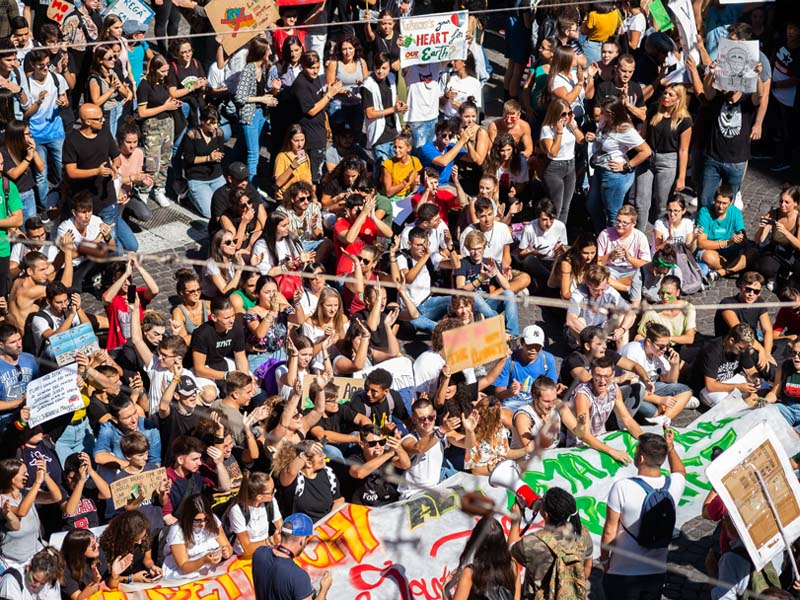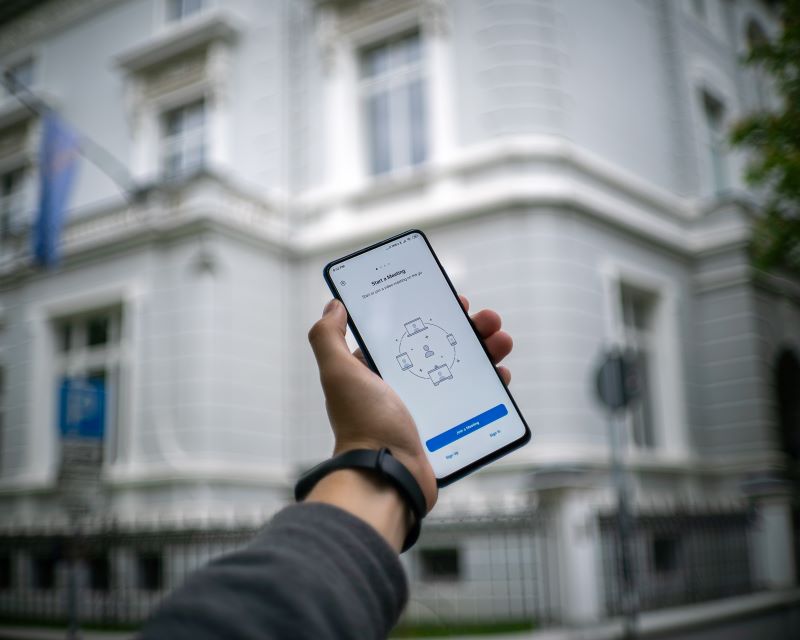One of six Balkan countries seeking to join the EU, Serbia and its neighbors have long held a strategic position at the juncture of Eastern and Western Europe. Given this strategic significance, the U.S. is actively working to curtail malign Russian and Chinese influence in Serbia and the Western Balkans as a whole, with the Biden administration taking a strong stance in “promoting accountability and combatting impunity” to shore up democracy in Serbia and the surrounding region. The need for accountable governance is also stressed in the new U.S. Strategy on Countering Corruption. As the country continues to rapidly evolve, Dexis supports strengthened engagement between Serbian citizens and their government, including tapping into one of the country’s greatest potential assets, Serbian youth.
Although they are both Presidents of their respective high school parliaments, Mina and Hamza come from very different parts of Serbia. Mina hails from Kragujevac, the fourth largest town in the country, while Hamza lives in Novi Pazar, a more remote region with probably the youngest population in Serbia. What the two have in common, however, is a drive to change their societies for the better, starting with promoting youth participation in decision-making.
Mina and Hamza are just two of approximately 23,000 students from 40 different schools in Serbia who participated in USAID’s Government Accountability Initiative (GAI). From 2018 to 2022, GAI worked to foster government accountability and to increase connections among and between government bodies and members of the public, including youth.
Transparency International lists Serbia as a “country to watch” and notes the country’s ongoing challenge with democratic erosion. The underlying reasons for Serbia’s battle with corruption are numerous and complex, ranging from economic turmoil to currently low rates of citizen involvement in and oversight of their government.
For example, over half (58%) of Serbians interviewed state that local governments do little or nothing to involve citizens in the decision-making process. Citizens’ trust in all institutions and their ability and will to oppose corruption has declined over the last three years. This extends to young people as well.
Typically, local municipalities allocate funding for schools to improve the learning environment, such as small-scale refurbishments and equipment purchases. Priorities are usually decided by the school management without any input from students themselves.
Applying lessons learned from its pilot project, Dexis’ GAI team worked with participating student parliaments to organize a process that allowed students to suggest potential projects that could be funded from the local budget. This included holding a ballot and assisting the student body to vote and select the most important project, which the student parliament would then propose to the local government for funding.
At first, many students seemed uninterested in voting, believing that their decisions would be overturned by someone in authority. However, young leaders like Mina and Hamza worked in conjunction with GAI to launch a PR campaign under the slogan “You are asked” (Ti se pitas in Serbian) with posters, social media promotional materials, branded voting ballots, and strong media coverage at the local and national level.
As students began to realize that school improvement plans were truly up to them, the level of interest soared. For the first time, students had the opportunity to actually decide on changes in their school that would be directly useful to them. “When we looked at the numbers, we saw that in our school the turnout rate at the voting was around 95%,” says Mina. While Hamza noted that at his school “over 90% of students were interested.”
Each of the participating school parliaments presented the selected projects to the local government in the agreed timeframe. Importantly, the local self-governments were equally responsive, allocating almost RSD 15 million (roughly $145,000) across the eight 2021 local budget proposals for the student-proposed initiatives.
The funded projects ranged from improved infrastructure to the purchase of technology for learning. In the 2022 budget proposal, the GAI team saw increased funding, which provides even more opportunities for youth to participate in democratic processes and contribute to their school communities. These cases also provide positive examples of citizen involvement in decision-making that other areas can emulate.
“I learned that we should stand for our own vote, for our future. Nothing will come to us if we just sit and do nothing,” says Mina. “Whenever you want something…you should fight for it to happen.”
Ana Martinovic, Milos Mojsilovic, and Irena Posin supported the USAID/Serbia Government Accountability Initiative (GAI) and contributed to this blog.




